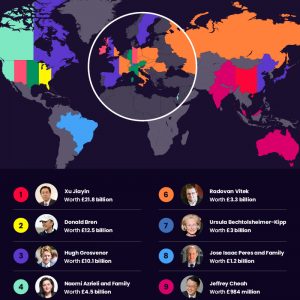Written by Peter Cleverton, General Manager, EMEA at HireRight
Everyone can appreciate the potential negative cost of a ‘bad hire’, in both financial and reputational terms. Background screening is utilised by businesses of all sizes around the world, but how do screening habits vary between SMEs and enterprise-sized businesses? For example, nearly 30% more enterprises than SMEs check their candidates’ education credentials pre-hire and they are almost twice as likely to find discrepancies. This short article from the world’s leading background screening provider is based on recent international research into these key differentiators and offer some tips and recommendations that fast growing SMEs can draw on when it comes to ensuring more consistent safety and security, improved regulatory compliance and, ultimately, a better quality of hire.
Attitudes toward background screening vary widely around the world. In the US, most candidates expect to be screened before starting a new job, no matter which industry they work in. In the UK, those outside of finance, healthcare and technology may have never been screened in their entire career. In other countries in Europe, Africa and Asia-Pacific, most people may not have even heard of pre-employment background screening.
It will not be surprising then, that screening practices vary from region to region. For example, the US transportation sector relies heavily on drug and alcohol screening and motor vehicle record checks, both of which are uncommon outside of North America.
What may be surprising though is that there are many clear differences globally between the screening habits of enterprise-sized business (those with over 500 employees) and small/medium-sized enterprises (SMEs) with under 500 employees.
HireRight’s 2020 Benchmark Survey was conducted from March-April this year and asked thousands of people professionals around the world about their companies’ background screening and recruitment activity in the last 12 months. Here’s a few takeaways from the preliminary findings which showcase some key differences and similarities between background screening in enterprises and SMEs.
Education checks are far more common in global enterprises than global SMEs
A worrying 61% of SMEs may be leaving themselves open to additional employment risk by not checking their candidates’ education details. The information provided by candidates (such as institution names, study dates, course titles and grades attained) could be inaccurate, or even completely made up. With companies of all sizes being caught out by candidates misrepresenting themselves on their CVs or application forms, this could be leaving smaller businesses vulnerable during the recruitment process. In comparison, just 32% of global enterprises are not checking their candidates’ education history. However, the top four checks conducted by businesses of all sizes globally are consistent: criminal, previous employment, identity and education.
SMEs are less likely to screen their non-employee workers
Almost twice as many SMEs don’t screen their extended workforce compared to global enterprises. For both enterprises and SMEs, the most commonly screened non-employees are temporary workers and independent contractors, but in both cases enterprise-sized businesses were more likely to be screening them. Our survey also found that a quarter of SMEs don’t have any non-employee workers (e.g. temporary workers, independent contractors, interns or volunteers), compared to just 7% of enterprise-sized businesses who said the same. It seems that SMEs are not only less likely to have an extended workforce but are also less likely to screen them when they do.
Global enterprises are more likely to discover candidate discrepancies
Fewer global SMEs have found discrepancies in the information provided by their candidates. However, there could be many reasons for this, including the depth of screening undertaken and the number of candidates screened per year.
With global enterprises far more likely to conduct education checks than SMEs (68% of enterprises check their candidates’ education history compared to 39% of SMEs), are they finding more discrepancies because they are conducting a higher volume of checks, or are they conducting more checks because they keep finding discrepancies?
Both SMEs and enterprises attribute a better quality of hire to background screening
Global SMEs and global enterprises both identified an improved quality of hire as the top benefit of background screening (58% and 55% respectively agreed). Other top benefits seen were more consistent safety and security, improved regulatory compliance, and improved company reputation.
You can find out more about the similarities and differences between background screening for SMEs and enterprises here. Additional infographics covering EMEA, US and Canada, APAC, India and global businesses (all sizes) are also available.


